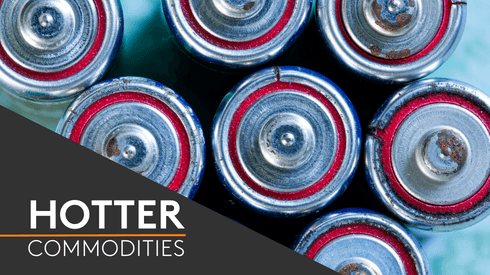China is considering a complete ban on imports of solid waste, including all metal scrap, by the end of 2020, the country’s State Council said on Sunday June 24 in its latest anti-pollution policy document.
The proposed goal marks a new threshold for the nation in its long-term strategy to enforce stricter environmental regulations, develop a more circular economy and advance its domestic recycling.
Exporters astonished
“So far, this is what is being proposed from China. It has not been implemented yet, but I think it is going to be. I don’t know if anyone will be able to change it. It’s a shock,” an export source said. “I have verified with Beijing that all Category 6 scrap metal will be included in this: furnace-ready materials like No 1 and No 2 copper, and copper chops, and twitch and zorba. This will not just kill the scrap industry, but what about China’s own demand?”
This policy is not out of left field, given China’s new rigorous inspection procedures at the port of destination and strict implementation of carried-waste thresholds, as well as its earlier announcement of a complete ban on imports of lower-quality, Category-7 copper scrap by the end of this year. Still, the reality of the nation substantially prohibiting imports in less than two years’ time has left US recyclers in shock.
“It is really a nightmare. It seems very clear that China may ban scrap metal, though this is not an official announcement and there are two years still, so a lot can happen. I think China will still allow some scrap to be imported into China. They need to import some. It is unreasonable; even fully developed countries still buy scrap,” a second exporter said.
And other sources shared similar sentiments.
“I don’t know how they’re going to do it. It is devastating to US exports of certain grades of coppers, brasses and zorba. Those are the main items that the US is going to have to deal with. There are no other countries that can process all the zorba even now, and China is still buying,” a third exporter said.
“There is a new announcement coming out of China every day – another new barrier. We like options, but China is becoming less and less of an option, and it sure seems [like] they are trying to test the waters. I don’t know why they want to do this, because scrap is much more efficient to melt than other items. We are now trying to become very self-efficient so that we can sell to Europe or domestic consumers,” a fourth exporter said.
Market, supply shifts
If China does ban or further limit scrap imports, the impact on metal prices could be devastating, according to market participants.
“There could be enough negative impact on spreads that domestic refining becomes extremely topical again. At some point, there will be a dramatic downturn of scrap prices,” a fifth exporter said. “The valuation of US-based scrap companies is going to get hit. One has to assume price structures will be less lucrative, margins will take a hit, scrap earnings will take a hit, and these scrap companies may have to look at integrating into end-use and manufacturing if they have the capital.”
Others speculated that if the new ban is officially implemented, China will shift from buying raw materials to purchasing more semi-finished products to fill that void.
“China wants to consume their own domestic waste and scrap. If this new regulation becomes implemented, I can see China becoming a real consumer, shifting more and more into consuming metal instead of processing metals,” the first exporter source said.
“Perhaps this will create more opportunities… Countries now [might have to] process and make scrap into ingot and brass bar or copper rod instead of relying on other countries like China to process. Still, I think what Beijing should have done is at least [give] the industry more time… three to five years to plan ahead. Two years is going to be really difficult,” the first exporter added.
The country’s demand level remains unclear, however, other market participants said, noting that the announcement went beyond simply implementing heightened environmental protection and vaguely outlined a deeper cultural push to promote a “greener” public initiative.
China intends to “strengthen the propaganda and education of ecological civilization; promote a simple and moderate, green and low-carbon lifestyle; and oppose extravagance and waste and irrational consumption,” according to the announcement.





